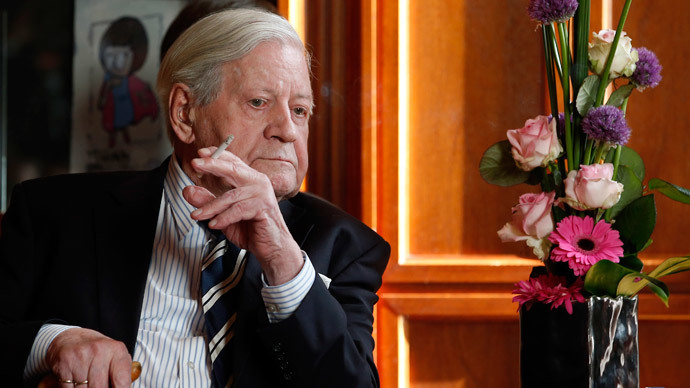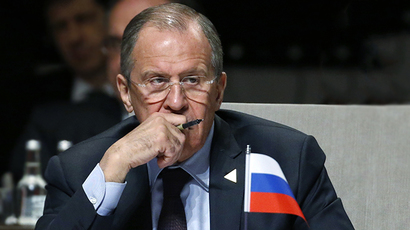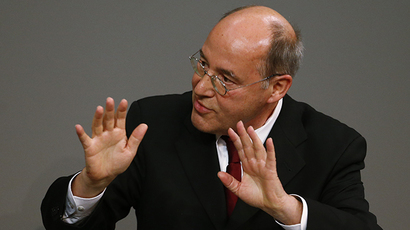Russia’s actions in Crimea ‘completely understandable’ – German ex-chancellor

Moscow’s actions in the Crimea are comprehensible, former German chancellor, Helmut Schmidt said, criticizing the Western reaction to the peninsula’s reunification with Russia.
President Vladimir Putin’s approach to the Crimean issue is “completely understandable,” Schmidt wrote in Die Zeit newspaper where he’s employed as an editor.
While the sanctions, which target individual Russian politicians and businessmen, employed by the EU and the US against Russia are “a stupid idea,” he added.
The current restrictive measures are of symbolic nature, but if more serious economic sanctions are introduced “they’ll hit the West as hard as Russia,” Schmidt warned.
He also believes that the refusal of the Western countries to cooperate with Russia in the framework of the G8 is a wrong decision.
“It would’ve been ideal to get together now. It would certainly do a lot more to promotion of peace than the threats of sanctions,” the ex-chancellor explained.
But the G8 itself isn’t that as important as the G20, in which Russia remains a member, he added.
According to Schmidt, the situation in Ukraine is “dangerous because the West is terribly upset” and it’s “agitation” leads to “corresponding agitation among Russian public opinion and political circles.
The ex-chancellor refused to speculate of the possibility of Russian troop deployment to eastern parts of Ukraine, but added that the West “shouldn’t fuel Russia’s appetites.”
Schmidt executed the duties of chancellor of West Germany in 1974-82, also working as the country’s finance, economy and defense minister.
Crimea and the city of Sevastopol were officially accepted into the Russian Federation on March 21, with president Putin signing a relevant decree.
The peninsula’s withdrawal from Ukraine was triggered by an armed ultra-nationalist coup in Kiev, which saw country’s president Viktor Yanukovich ousted.
After the law allowing regions to give Russian and other minority languages the status of a second official language was revoked by the new parliament, Crimea – home to an ethnic Russian majority – has held a referendum on its future as part of Ukraine. On March 16, over 96 percent of Crimean voters decided to cut ties with Kiev and rejoin Russia.
The US and its EU allies were outraged by the move and replied with individual sanctions against Russia’s top politicians and businessmen. The blacklisted Russian citizens are banned from travelling to US and EU, with their American and European assets frozen.














